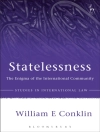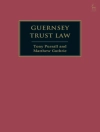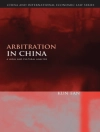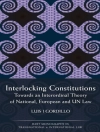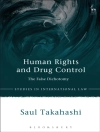Thesis (M.A.) from the year 2006 in the subject Law – European and International Law, Intellectual Properties, grade: 13, 53 (gut) , Justus-Liebig-University Giessen, course: Magister Juris Internationalis, language: English, abstract: With an aging demographic all over the European Union, the European pharmaceutical sector is set to grow in the coming decades. Al-ready today the pharmaceutical industry is a key employer in Europe. At the same time, the pharmaceutical industry is marked by a very ex-pensive research and development phase, which makes strong intellectual property rights crucial to ensure that research for new pharmaceuticals remains commercially interesting. But not only direct threats to intellectual property rights, such as the production of generic phar-maceuticals or the sale of counterfeit pharmaceuticals, pose a threat to those pharmaceutical companies which heavily invest in research for the development of new products: different prices for identical pharmaceuticals in different member states of the European Community make it economically interesting to buy pharmaceuticals in one member state and sell them abroad. It might even be cheaper to sell reimported pharmaceuticals in the country of origin. This possibility opens a whole new market for reimporters which cuts directly into the profit of the producers. In this thesis we will look at different issues surrounding intellectual property rights in the European pharmaceutical sector by investigating the jurisprudence of the European Court of Justice and the Court of First Instance.
Despre autor
Docent Dr. Stefan Kirchner, Assessor jur., MJI is Associate Professor for Arctic Law at the Arctic Centre of the University of Lapland in Rovaniemi, Finland, and Adjunct Professor of Fundamental and Human Rights at the same university. His work focuses on the crossroads of human rights, the environment, shared areas, in particular the oceans and outer space, and international business and trade.
Prior to joining the Arctic Governance Research Group at the Arctic Centre he taught public law, international law and civil rights as Visiting Professor for Transitional Justice at the University of Turin (Italy), University Lecturer and Associate Professor for Fundamental and Human Rights, with a Special Focus on Indigenous Rights, at the Faculty of Law of the University of Lapland in Rovaniemi (Finland), Assistant Professor for International Law and Associate Professor for the Law of the Sea at Vytautas Magnus University in Kaunas (Lithuania), scientific employee in the Department of Public Law of the Faculty of Law of Georg-August-University in Göttingen (Germany), and Visiting Lecturer at the Institute of International Relations at Tars Shevchenko National University in Kyiv (Ukraine) and at the Faculty of Law Justus-Liebig-University in Giessen (Germany). Formerly a practising lawyer (Rechtsanwalt) in Germany for over a decade, he has worked on international trade law, corporate law, the law of the sea and human rights law, including cases at the German Federal Constitutional Court (Bundesverfassungsgericht), the German Federal Supreme Court (Bundesgerichtshof), the German Federal Administrative Court (Bundesverwaltungsgericht) and the European Court of Human Rights. In addition, he served as legal agent for Germany’s Federal Maritime and Hydrographic Agency, working on international shipping law, oil pollution and seafarer training issues. Dr. Kirchner is active in a number of professional organizations and is a regular reviewer for a number of academic publishing houses and academic journals, a member of editorial boards for several international academic journals and has written over one hundred academic articles and book chapters. He has been an evaluator of research projects for the Norwegian Academy of Sciences and Letters. Prior to his legal career he worked as a freelance journalist in Germany, as an emergency medical technician (Rettungssanitäter) for the German Red Cross and as a factory worker for a company producing transformers.


